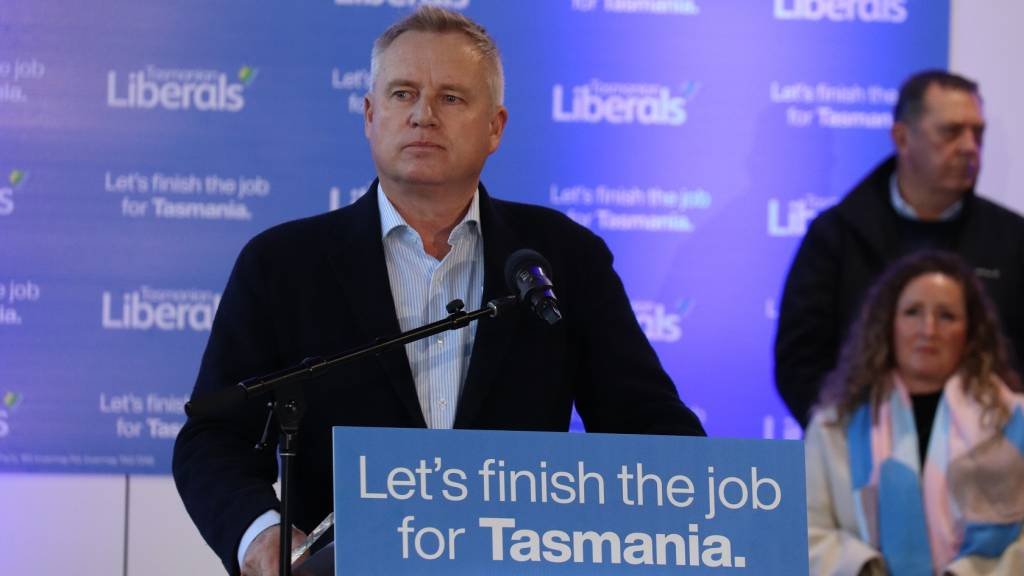The biggest losers from the Tasmanian election are the two major parties — an appropriate outcome given how poorly they have served their citizens.
After forcing a minority government to an election, Tasmanian Labor suffered a swing of over 3% and barely crawled to over 25% of the vote — a stark contrast to federal Labor’s thumping success in Tasmania less than three months ago, and far below the level of combined support for the Tasmanian Greens and independents. The Tasmanian Liberals earnt a 3% swing but, despite securing half as many seats again as Labor, still remain well short of majority government.
As Saul Eslake pointed out today, neither Labor nor the Liberals have demonstrated any seriousness about the long-term fiscal problems facing Tasmania — problems demonstrated in the Liberals’ shambolic budget and its addiction to ever-more spending. And both sides remain committed to the gravest fiscal folly of all: the Hobart stadium, about which the Liberals were prepared to ignore clear evidence and basic process to get started.
Despite efforts by the Hobart media, including the ABC, to attacks sceptics of the stadium proposal, the great majority of Tasmanians are opposed to it and want the deal for a football team renegotiated with the rapacious, gambling-addicted AFL.
That leaves the Liberals and Labor — both of whom have undermined Tasmania’s sovereignty in their support for the AFL deal — with the choice of either continuing to ignore the terrible business case of the stadium, and undermine basic planning processes in an effort to ram the project through, or accept that being in minority government requires some different thinking about how to go about governing — and perhaps even governing in the state’s interest, rather than their own narrow partisan interests.
Ironically, one of the people who has made the Liberals’ lives so difficult in relation to the stadium debacle might have a way forward on that front. It was economist Nicholas Gruen who shredded the risible “business case” for the stadium put together for the Liberals by KPMG and showed it would cost far more to build, and generate far less revenue, than claimed by proponents.
But Gruen, wearing one of his other caps as national treasure and public policy wonk, has long backed the idea of citizens’ assemblies as a mechanism for resolving policy issues that the political class has struggled with. An assembly drawn by ballot, not election, could be charged with resolving the issue of what is acceptable to Tasmanians in relation to any deal with the AFL, conduct its own inquiry, choose its own experts and hold its own hearings.
There are questions around how long the body would meet, how or whether its members would be remunerated and what status its conclusions would hold with the government that is eventually formed, but its conclusions would carry democratic legitimacy of a kind that’s hard to see being achieved by the Tasmanian Liberal or Labor parties cosplaying at majority government. Moreover, it would provide a way forward currently unavailable to either of the major parties, given their support for the stadium.
There’ll be critics who would portray a citizens’ assembly as an abrogation of power, and argue that politicians are elected, and therefore politicians should be the ones making decisions. Putting aside that it is politicians who will end up making the decisions no matter what a citizens’ assembly recommends, an assembly would reintroduce into the decision-making process something entirely missing from the stadium debate currently: proper deliberation.
As Gruen’s analysis of the stadium showed, the decision by the Tasmanian government to proceed with the stadium was bereft of informed deliberation. Instead, it was a political decision that was dressed up in the garb of proper policy process — a bespoke government agency, a shonky big four consultants’ report — designed to convey the impression there was deliberation going on, when there was none. It was only because the government’s minority status saw it pushed to seek an independent assessment of the proposal that this sham of a process was exposed.
This is the increasingly dominant mode of decision-making in majority government systems across Australia — decision-making undertaken based purely on political imperatives, with some faux-deliberation draped over them to spare the perpetrators’ blushes. A stadium that will be a waste of money. A cashless poker machine trial in Sydney nobbled from the start and abandoned. Tens of billions of investments in infrastructure with negative net benefits in Victoria. A $370 billion nuclear submarine deal made with no meaningful assessment.
The retention of minority government in Tasmania enables this fraud — for that is what this process of fake deliberation is — to be short-circuited, if crossbenchers are willing to force the big parties to think outside the majority mindset.
Should Tasmania ditch the stadium? Do you back the idea of a citizens’ assembly?
We want to hear from you. Write to us at letters@crikey.com.au to be published in Crikey. Please include your full name. We reserve the right to edit for length and clarity.

